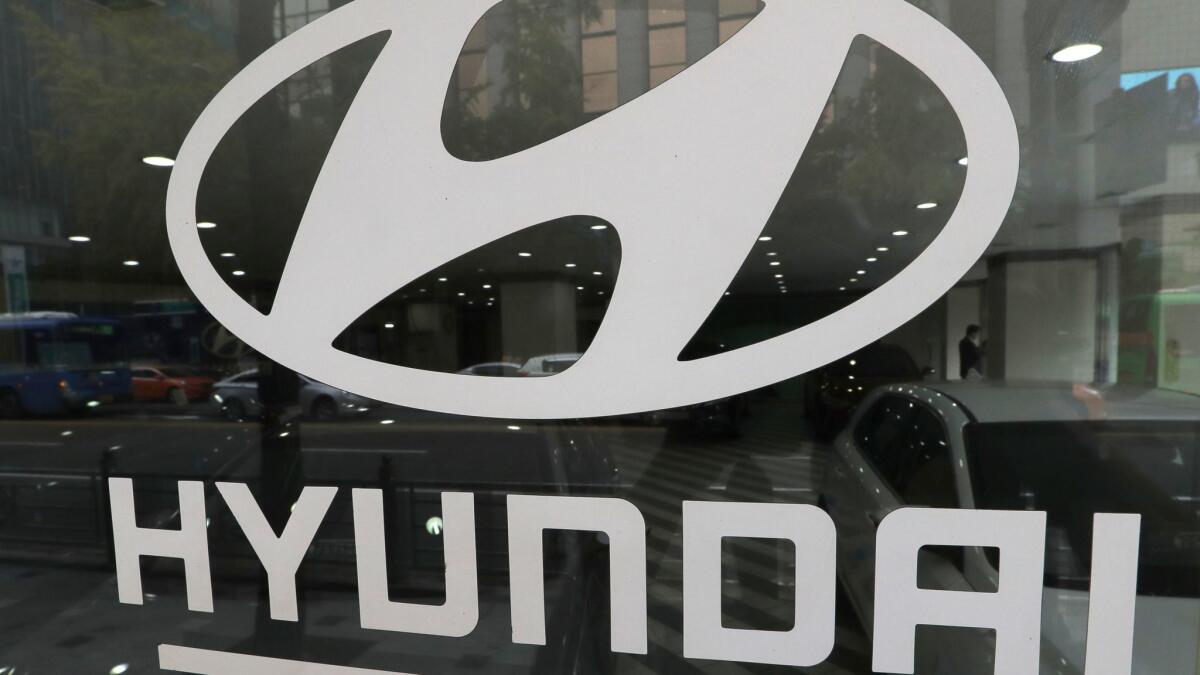Hyundai and Kia reach $41-million settlement with California and other states

- Share via
South Korean automakers Hyundai Motor Co. and Kia Motors Corp. are to pay $41.2 million to California, 32 other states and the District of Columbia to settle an investigation into their fuel economy ratings.
California gets the largest share of the settlement money: $3 million, according to state Atty. Gen. Kamala Harris’ office.
The fine is the latest in the ongoing fallout from misstated mileage numbers on more than 1.2 million vehicles in the United States.
In 2012, Hyundai and Kia restated the mileage on one-quarter of their 2011-2013 model year vehicles after the U.S. Environmental Protection Agency questioned their mileage numbers. The companies deny they violated the law, and instead cite lack of clarity in EPA test procedures.
According to the EPA, the automakers had overstated the fuel economy by one to six miles per gallon, depending on the vehicle.
“Even with our adjusted ratings, we are encouraged that Hyundai continues to lead the automotive industry in fuel efficiency and environmental performance,” David Zuchowski, president and chief executive of Hyundai Motor America, said in a statement this week.
Hyundai and Kia — sibling companies whose U.S. headquarters are in Fountain Valley and Irvine, respectively — paid $300 million in penalties to the U.S. government in 2014. They say they have also reimbursed about 75% of customers.
“California consumers deserve reliable and accurate information regarding the environmental impacts of the cars they buy,” Harris said in a statement. “Kia and Hyundai misrepresented the fuel economy of its vehicles, misled consumers and contributed to more greenhouse gas emissions.”
A class-action lawsuit remains subject to an ongoing appeal.
Times staff writer Lauren Raab contributed to this report.
ALSO
Surprise: Tesla turns a profit for the first time in three years
Uber’s self-driving truck makes its first commercial delivery: beer
Is electric car start-up Faraday Future already running out of cash?






